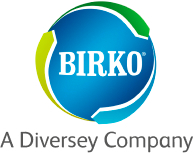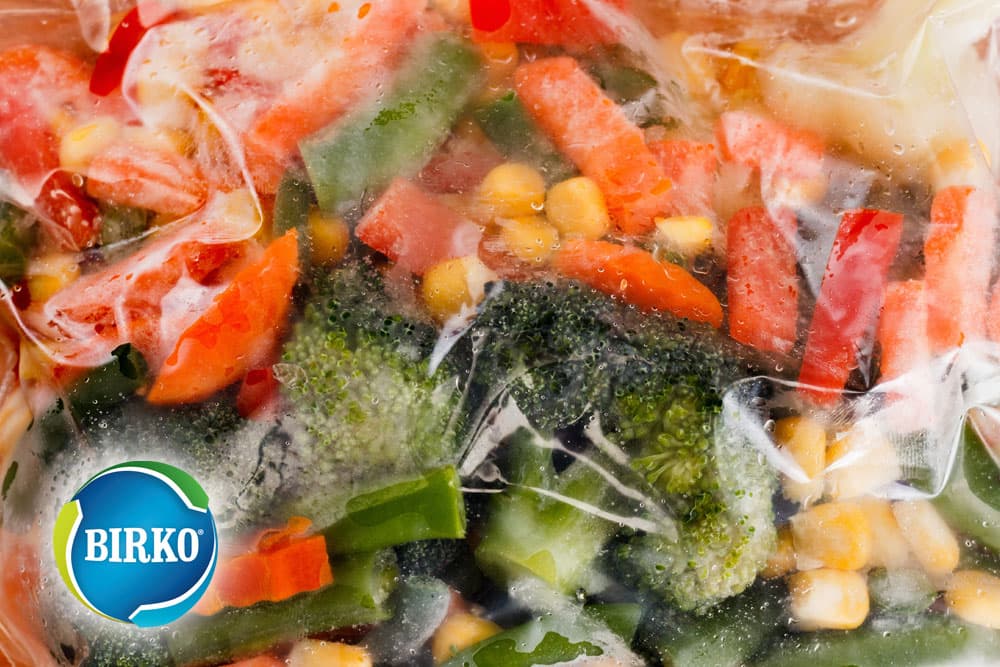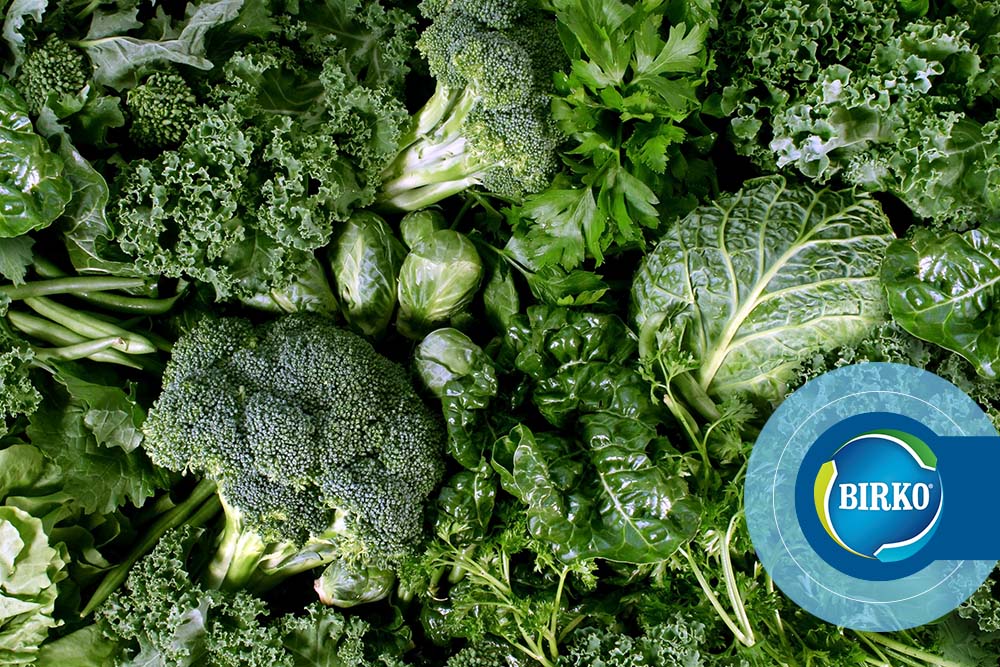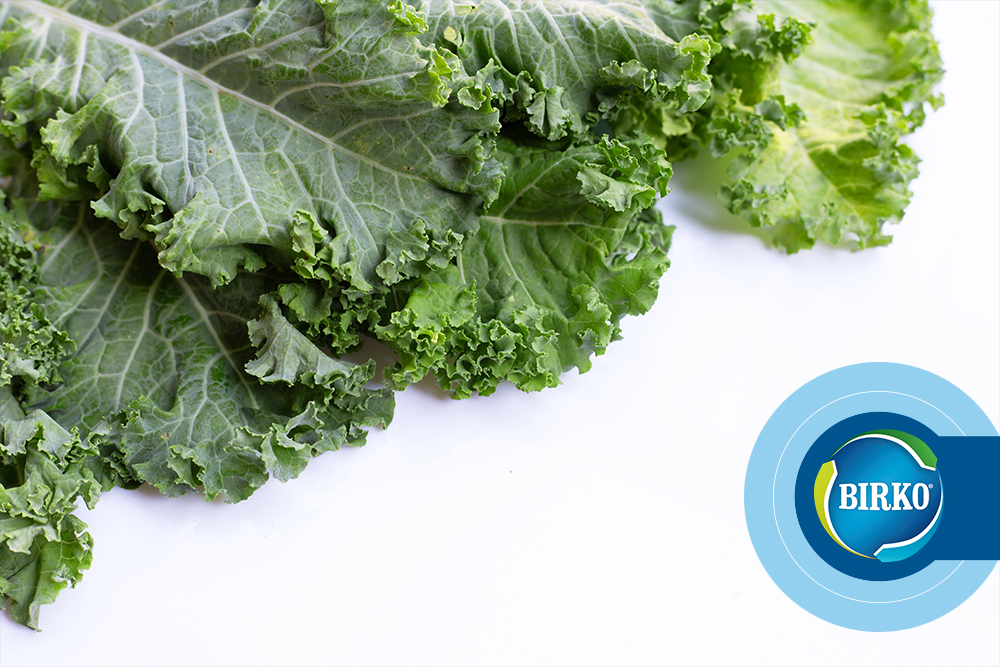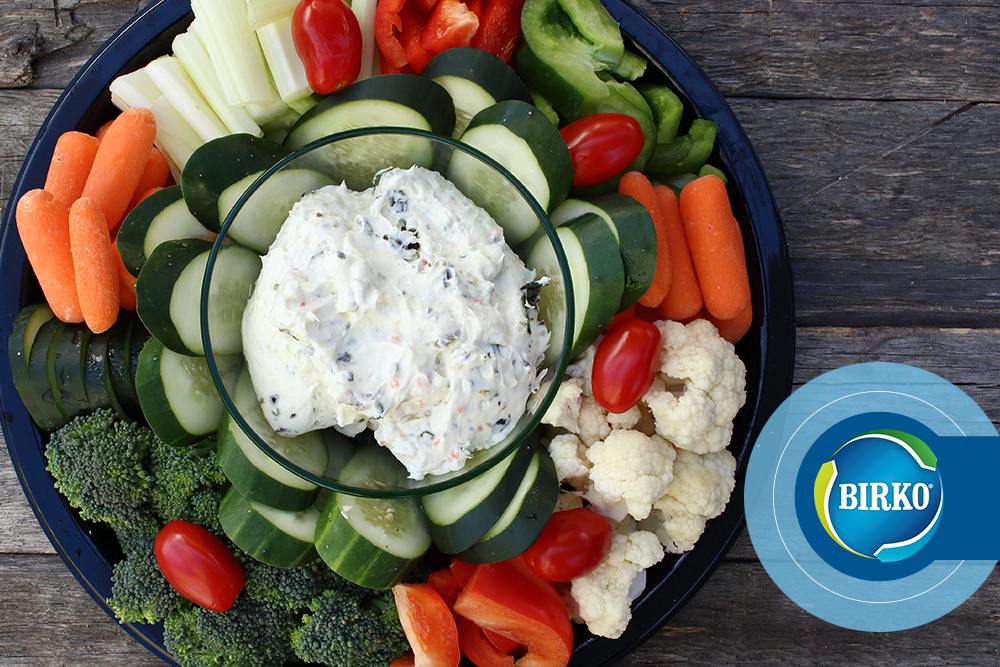Do you have a Listeria contamination happening inside your plant? With increased scrutiny on produce processing that came with implementation of the Food Safety Modernization Act (FSMA), it has become crucial for facilities to understand the risks and develop a plan for addressing food safety issues.
Facilities processing fresh and frozen produce have unique considerations and concerns, which call for customized plans and procedures to counteract food safety problems.
Compared to E. coli and salmonella, Listeria can pose an even greater food safety risk in produce facilities. E. coli and Salmonella are less likely to grow in a refrigerated setting, but Listeria thrives in cold, wet environments. Since there is often no lethality step like cooking for fresh-cut and frozen fruits and vegetables, the risk of contaminated product can be significant.
Understanding the Risks of Listeria Contamination
There are many ways for Listeria to enter a facility. Listeria is a common soil organism, so it can come in on the product, or it can be tracked in on the tires of vehicles, employee footwear.
Birko works closely with our clients to develop methods of mitigating the risk of entry, because getting rid of Listeria once it takes up residence is a much bigger challenge.
It is a stubborn pathogen that can persist in the right settings for a long time. There have even been extreme cases in which a facility had to be torn down because the Listeria contamination was so bad.
One of the first things Birko looks for in a plant with a persistent Listeria problem is the presence of biofilms. Biofilms are frequently resistant to normal cleaning and sanitation processes and can also shed bacteria during production, which may cause ongoing contamination issues.
Biofilms are frequently found inside drains – a very common harborage area for Listeria, and care must be taken to avoid transferring Listeria from drains to other more critical areas of the plant.
For example, employees who attempt to unclog a drain by sticking a hose in the drain and turning it on full blast may inadvertently aerosol bacteria on to food contact surfaces.
A product like the Sterilex two-part sanitizer for drains is required to effectively remove biofilms. This product is a thick foaming agent that fills the drain pipe and cleans the entire circumference. And it’s an EPA-registered solution.
Besides drains, Listeria can also hide in the nooks and crannies of equipment and cracks in flooring.
Reputation and Public Safety Concerns
A food safety event connected to Listeria can severely damage a company’s reputation. It could prompt shoppers to stop buying your brand, but it could also have an even wider impact on consumer opinions and habits. A single product recall on something such as cantaloupes, Brussel sprouts or green beans could make shoppers hesitant to purchase those products in general.
Another potential public safety issue is connected to changing consumer habits around produce use. For example, frozen produce is now regarded as a ready to eat item due to the prevalence of consumers eating frozen vegetables raw in salads or smoothies Because the cooking step is skipped, the foods you have been producing the same way for years could pose a safety risk.
Beyond damage to brand reputation, the possibility of criminal charges following a public illness outbreak also exists. The Department of Justice may get involved, especially if there are injuries or fatalities connected to a food product recall.
Prevention Advice
Your organization needs a documented food safety plan for dealing with Listeria and other food safety risks. Another critical element is an understanding of the importance of sanitary design and how to identify where improvement is needed. There are some specific steps produce processors can start implementing now.
For drains, make sure you have an established procedure that limits the potential for Listeria to spread.
Drains should be cleaned early in the sanitation process and the tools used should be clearly labeled and color coded so they aren’t used for other cleaning tasks. Additionally, personnel who clean drains should change PPE and wash up before cleaning other areas of the plant.
We often discover that plants are failing to complete an effective “dry pickup and initial wash down” important steps that occur early in sanitation, and to a certain extent can be an ongoing process throughout the production day. Dry pick up includes removing product and packaging so floors can be swept and equipment rinsed to remove as much gross soil as possible before chemicals are applied
When dry pickup isn’t done well, food particles may remain on the surface of equipment, and that can interfere with the efficacy of sanitation chemicals.
Other important prevention steps include encouraging good hygiene among employees and periodically rotating the main sanitizer to avoid the potential for microorganisms to acclimate to the chemicals being used.
Developing a Documented Plan
FSMA regulations require produce processors have a Standard Sanitation Operating Procedure (SSOP) for addressing Listeria contamination and other food safety problems. Compliance with the Preventive Controls Rule in FSMA also call for the appointment of a trained and certified Preventive Controls Qualified Individual (PCQI). As an alternative, you could bring on a PCQI consultant or work with your supplier to advise you.
Asking the right questions will help you begin evaluating their food safety situation:
- How sanitary is your facility?
- Is your organization able to produce food in a sanitary environment?
- Do you have adequate resources and tools including cleaning products, labor, and time invested in food safety?
- Are you using appropriate solutions to wash food product?
- Is packaging designed to keep food safe?
- Are there mechanisms in place to make sure refrigerated temperatures are maintained?
Answering those questions may not be easy. But, that’s where we can become a trusted advisor in food safety. We do more than sell chemicals for sanitation. We employ experts who can evaluate the situation in your facility while providing guidance and recommendations on how to better address food safety and implement principles of sanitary design.
Adjusting to the regulatory changes of FSMA will certainly come with challenges, however, there are substantial benefits to improving food safety.
Prioritizing proper sanitization and focusing on significant risks such as Listeria is an investment in protecting your company’s reputation and its future. With the right food safety partner, you can have more peace of mind because you’ll know all the necessary steps are being taken to make your facility a safer, cleaner place.
Whether you have questions about our products for produce and fresh-cut or want to learn more about how Birko can serve as your expert advisor, we encourage you to contact us today and start the journey towards better food safety.
 Elis Owens, Ph.D., Director, Technical Services, Birko, can be reached at [email protected] or (303) 289-1090.
Elis Owens, Ph.D., Director, Technical Services, Birko, can be reached at [email protected] or (303) 289-1090.

